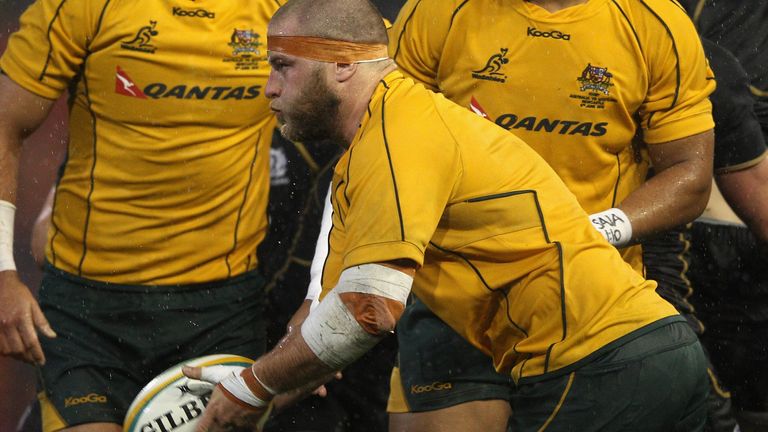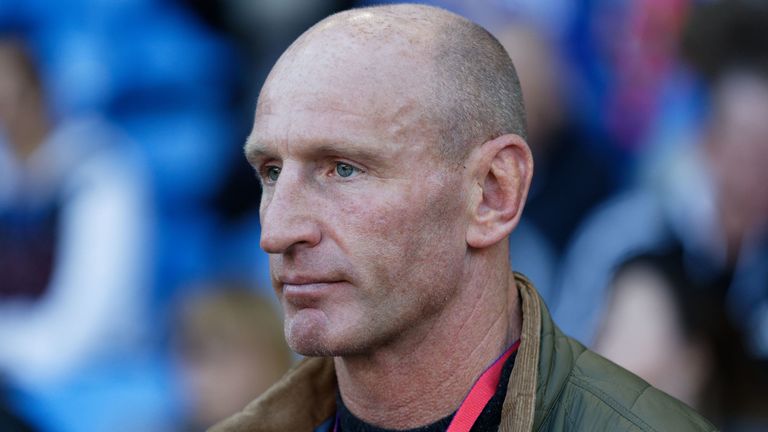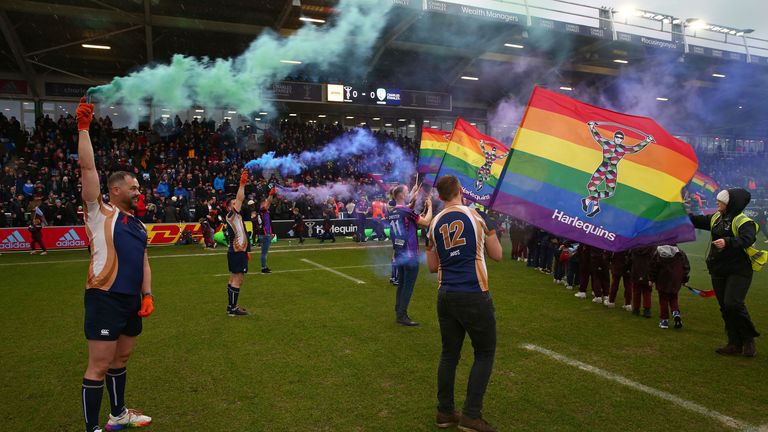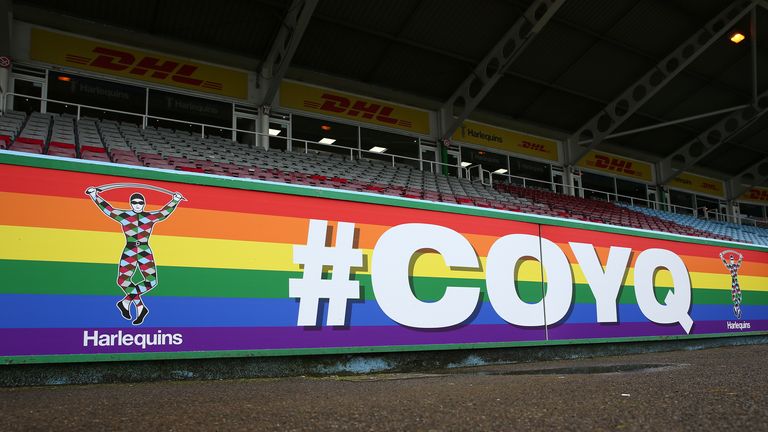Dan Palmer: Former Australia rugby prop becomes first openly gay Wallabies player
Dan Palmer, who made his only Test appearance for the Wallabies at tighthead prop against Scotland in 2012, spoke about the mental health issues and drug problems he faced while coming to terms with his sexuality: "Most nights, I cried myself to sleep"
Friday 30 October 2020 08:14, UK
One-Test Australia prop Dan Palmer has become the first Wallabies player to come out as gay.
Palmer came out in a newspaper column on Friday, speaking about the mental health issues and drug problems he faced while coming to terms with his sexuality.
The 32-year-old wrote in the Sydney Morning Herald of the anguish of "living the dream" as an elite athlete while being trapped in a "false narrative".
"I was incredibly frustrated, angry and desperately sad. I despised myself and the life I was living," wrote Palmer, a former vice-captain of Super Rugby side ACT Brumbies.
"Most nights, I cried myself to sleep and routinely numbed myself with a heavy cocktail of opioids.
Trending
- Seven goals and 'keeper howlers! | Spurs edge Man Utd in CHAOTIC quarter-final
- Premier League build-up LIVE! Who will be Christmas No.1?
- Ange defends style but issues warning as Amorim stands firm on Rashford call
- Transfer Centre LIVE! 'Saudi could offer Rashford way out of Man Utd'
- Usyk vs Fury 2: Start time, ring walks, undercard and odds
- PL Predictions: More dropped points for Arsenal at Palace?
- 'He's not that good a player...' Carra and Redknapp react to Rashford comments
- Usyk: I'm preparing to go up against a walking fortress
- Southampton-linked Juric arrives in UK as talks continue
- World Darts Championship schedule: Van Gerwen and Bunting headline Friday
"I fantasised about disappearing, changing my name and starting my life all over again. It is not an exaggeration to say my own death felt preferable to anybody discovering I was gay."
Former Wales captain Gareth Thomas is the only other rugby union international to come out. After going public in 2009, Thomas also revealed struggles with personal demons while concealing his sexuality.
Palmer made his only Test appearance for the Wallabies at tighthead prop against Scotland in 2012. He also had a stint with the New South Wales Waratahs and signed with a French side but walked away from the game after a serious injury.
Palmer said he had overdosed on painkillers while in France and woken up in a "pool of the previous day's food". The moment was transformative, and he flew to London to share his secret for the first time with a friend.
Homophobic language 'common in rugby union'
A recent study backed by Harlequins has revealed that almost half of male rugby players admitted to recently using homophobic slurs while over two-thirds had heard team-mates use similar language.
The study analysed data collected from randomly selected rugby clubs in the south of England in January and February of 2020.
It found that the majority of male rugby players (69 per cent) had heard their team-mates using slurs such as 'fag' or 'dyke' in the last two weeks, while 42 per cent of players admitted to using this language themselves in the same time period.
The study also found this language does not appear to be motivated by 'homophobia' or any malice or prejudice toward gay people, with many of the rugby players who used the 'slurs' also expressing positive attitudes toward gay people, and most (67 per cent) male rugby players reported they have 'close' gay friends.
"It is surprising to see a near-total disconnect between the homophobic language being used by rugby players, and their attitudes to gay people," Erik Denison said, one of the researchers leading international studies on this issue. He is with the Faculty of Education at Australia's Monash University.
"Most rugby players say they use the homophobic language to get a laugh out of others, or fit in on their team, and it seems they don't realise how harmful this language is to gay people, or to the team culture generally. It was very interesting to see most want the language to stop being used, but don't realise everyone else on their team feels the same way."
Speaking following the completion of Monash's study, head of The Harlequins Foundation Marc Leckie said: "It is really important for all of us at The Harlequins Foundation to support and highlight the significance of this incredibly important research, and moving forward we hope to make a positive difference through role modelling and education that challenges the barriers that member of the LGBTQ+ community face in participating in sport."







